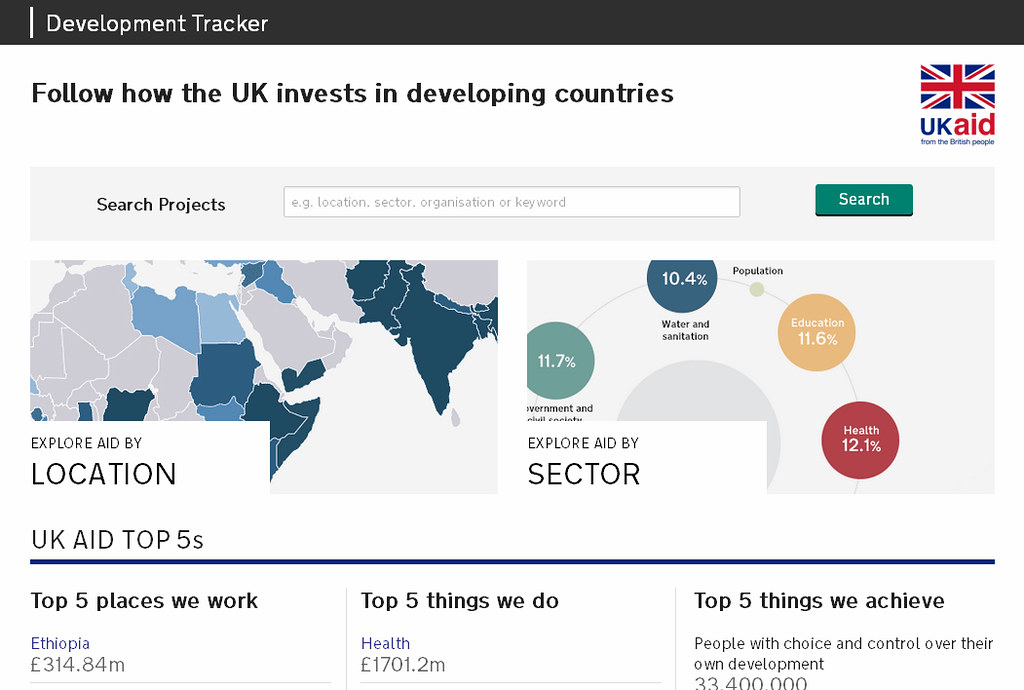31st October 2013 Washington DC, USA
Staying Committed to Aid Transparency
I’ve been looking forward to October 31st for some time now. Why you ask? Because it marks two occasions that signal the UK’s commitment to aid transparency – the official full launch of DFID’s Development Tracker website and the first day of the 2013 Open Government Partnership Summit.
That may not have been the answer you were expecting (and I’ll admit I’ve been eagerly planning a Halloween costume too!) but the UK’s continued efforts on aid transparency are exciting and important. Having reliable information on where and how donor countries spend aid money is an essential goal for the international community. Aid transparency can lead to better development outcomes. As someone who has previously worked with NGOs in Bangladesh and South Africa, I know firsthand that understanding exactly where and how aid money is used ensures that it is spent well.

The Development Tracker launching today is an online aid information platform that provides information about where and how much DFID spends on projects in developing countries. You can look at spending in a country, zoom in to see how money is being spent in local districts, and see a breakdown of each individual project. You can even sign up for monthly email updates for specific countries to be notified of new and updated projects. The Tracker also includes information about how partner organizations spend the funding they receive from DFID. This is great because it means you can trace how DFID’s resources are actually utilized on the ground. Most importantly, the Tracker uses open source data from DFID and its partners that is in line with the International Aid Transparency Initiative (IATI) standard. The IATI standard was designed by donor governments, developing countries, and civil society organizations as an international standard for reporting aid information so that data could be compared across countries in the same format. The Tracker’s use of the IATI standard will make it easier to evaluate DFID’s aid data alongside other donors, allowing for better coordination and information sharing.
Getting excited yet? You should be! While all this discussion can sound technical at times, it boils down to this simple fact – the Development Tracker empowers the public to hold DFID accountable for how it spends aid money abroad. That’s a good thing.
Today also marks the first day of the 2013 Open Government Partnership (OGP) Summit being hosted in London. Over 1000 delegates from over 60 countries will attend the summit, representing about a third of the world’s population. As the co-chair of the OGP summit, the UK will fulfil Prime Minister Cameron’s pledge at the G8 earlier this year to “drive a transparency revolution in every corner of the world.” The UK is using the summit as an opportunity to secure new ambitious commitments from countries in areas including open data and fiscal transparency. Aid transparency is an important piece of this broader transparency agenda, so at the summit the UK will continue to encourage its global partners to adopt IATI standards as the common format for publishing aid information.
It’s great to see the UK taking concrete steps on aid transparency by using the Development Tracker to make its aid data easily accessible and by building momentum on a larger transparency agenda among the international community at the 2013 OGP Summit. These events show the UK continuing to push forward on its commitments to aid transparency – and that’s something worth getting excited about.